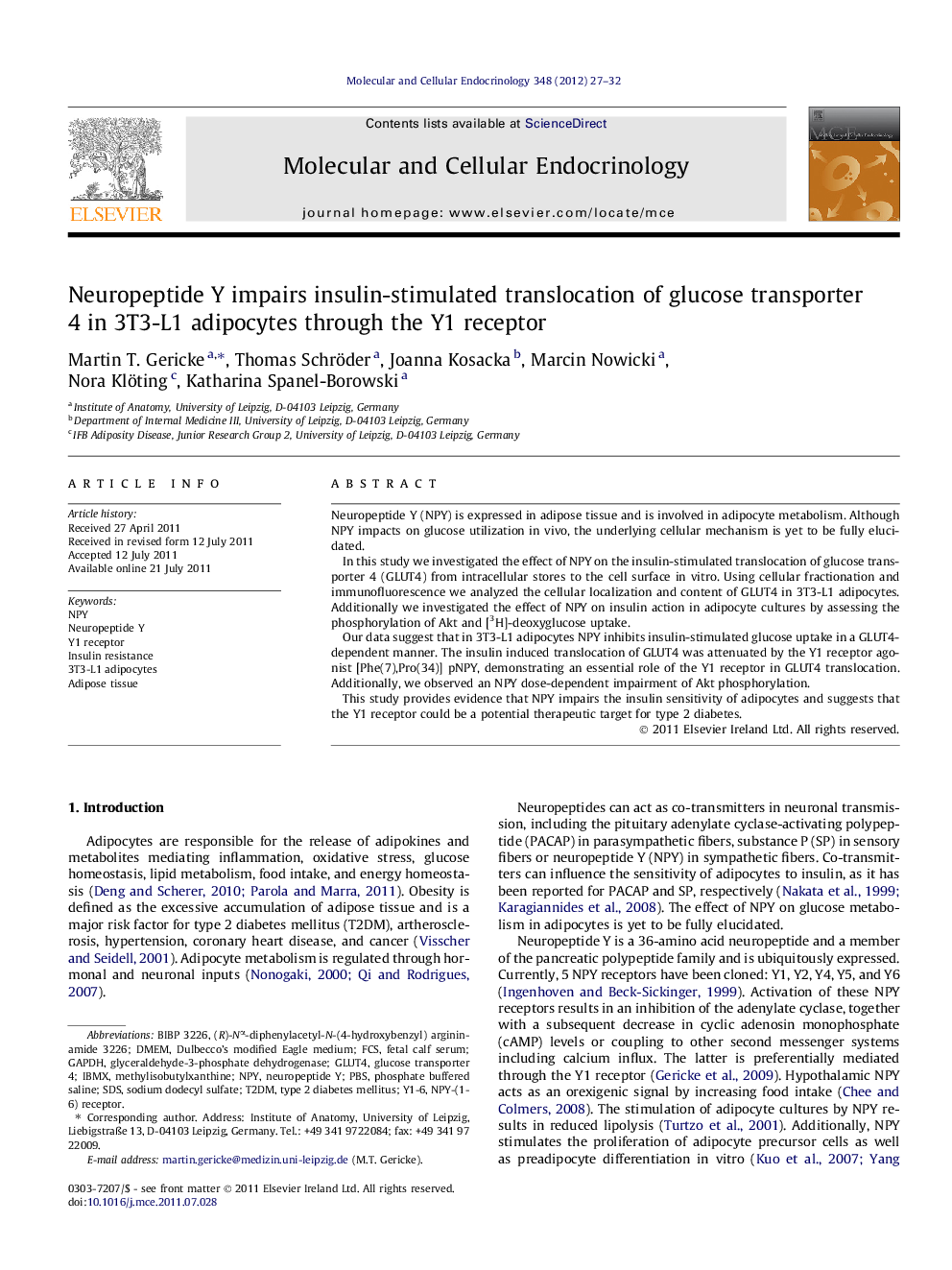| Article ID | Journal | Published Year | Pages | File Type |
|---|---|---|---|---|
| 2196497 | Molecular and Cellular Endocrinology | 2012 | 6 Pages |
Neuropeptide Y (NPY) is expressed in adipose tissue and is involved in adipocyte metabolism. Although NPY impacts on glucose utilization in vivo, the underlying cellular mechanism is yet to be fully elucidated.In this study we investigated the effect of NPY on the insulin-stimulated translocation of glucose transporter 4 (GLUT4) from intracellular stores to the cell surface in vitro. Using cellular fractionation and immunofluorescence we analyzed the cellular localization and content of GLUT4 in 3T3-L1 adipocytes. Additionally we investigated the effect of NPY on insulin action in adipocyte cultures by assessing the phosphorylation of Akt and [3H]-deoxyglucose uptake.Our data suggest that in 3T3-L1 adipocytes NPY inhibits insulin-stimulated glucose uptake in a GLUT4-dependent manner. The insulin induced translocation of GLUT4 was attenuated by the Y1 receptor agonist [Phe(7),Pro(34)] pNPY, demonstrating an essential role of the Y1 receptor in GLUT4 translocation. Additionally, we observed an NPY dose-dependent impairment of Akt phosphorylation.This study provides evidence that NPY impairs the insulin sensitivity of adipocytes and suggests that the Y1 receptor could be a potential therapeutic target for type 2 diabetes.
► Obesity is linked to diabetes as well as to the sympathetic co-transmitter NPY. ► NPY impairs stimulated GLUT4 translocation and glucose uptake action on adipocytes. ► This effect seems to be mediated by the Y1 receptor. ► NPY could contribute to an impaired glucose tolerance and type 2 diabetes.
